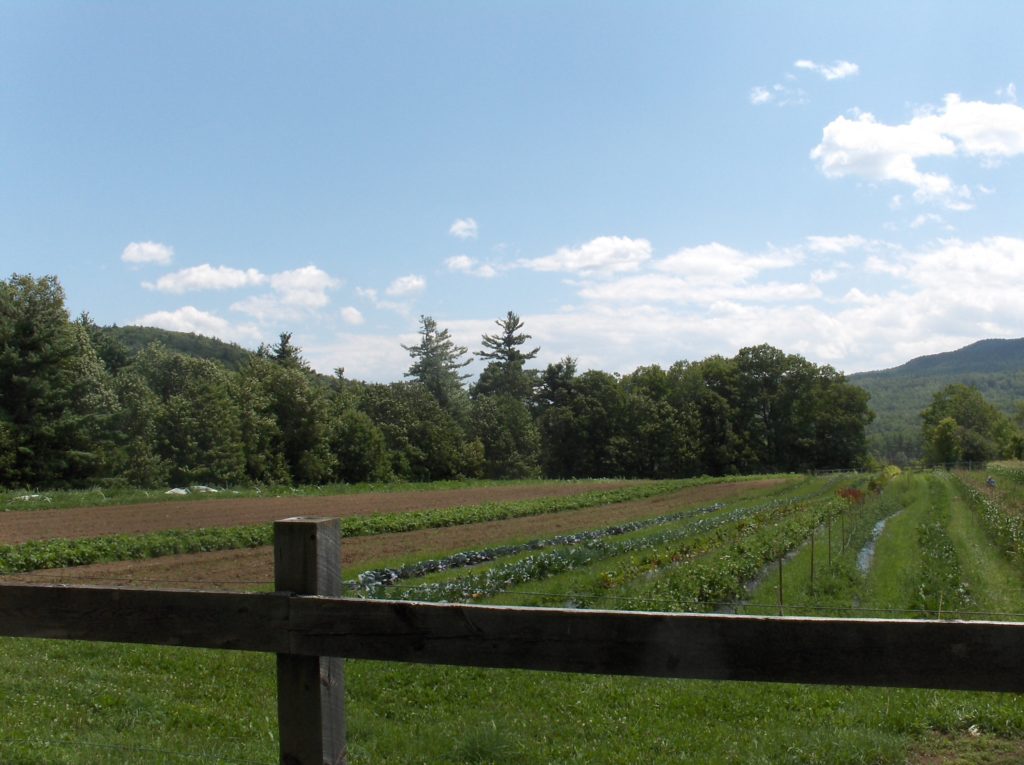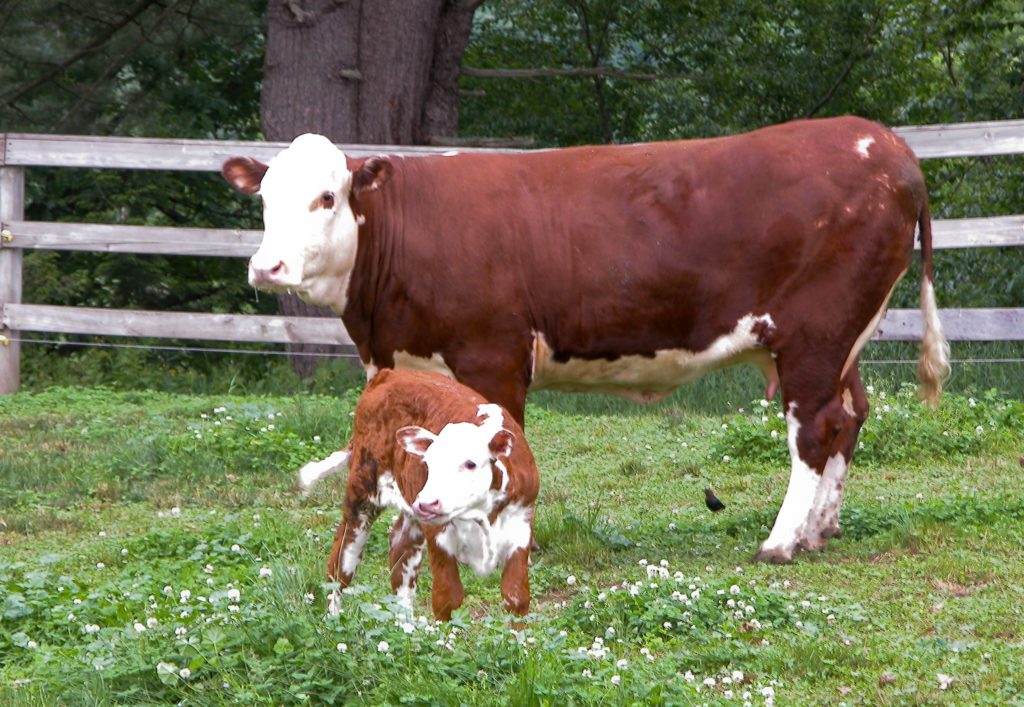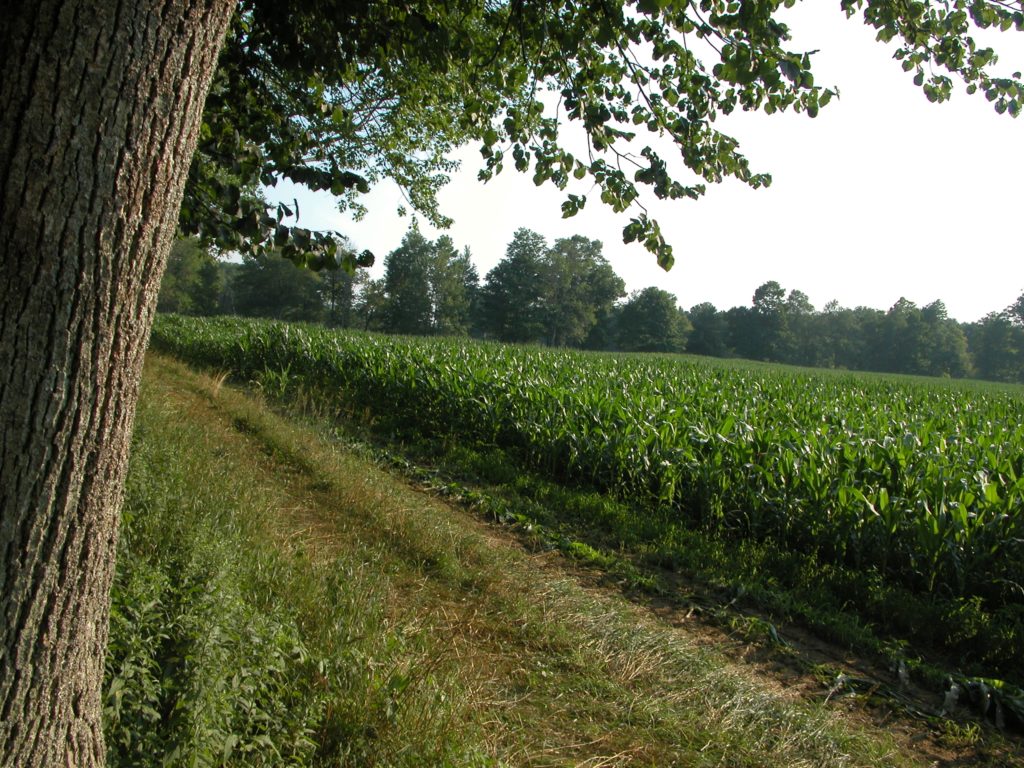How to start homesteading in New Hampshire

In 1900, poet Robert Frost moved to a small farm in Derry, New Hampshire, to raise poultry. There he found land, good water and a community that lived close to nature.
In the Granite State, people can follow a lifestyle working on and with the land. There is available land, financing and an existing agriculture infrastructure.
For anyone thinking of homesteading in New Hampshire, here’s what you need to know before you begin.
Buying farmland in New Hampshire
In 2018, there were 4,100 farmers in New Hampshire with 430,000 of the state’s acreage devoted to farming or homesteading, according to the United States Department of Agriculture. These farms range in size from a single acre homestead to large operations of more than 1,000 acres.
New Hampshire’s farmland was valued at an average of $4,500 an acre in 2018, according to the United States Department of Agriculture. New Hampshire farmland prices are the third cheapest in New England, behind Maine and Vermont. Land prices can vary from this average if there are existing farm buildings on the land or if the land is already cleared and ready for planting.
There is funding available for purchasing farmland in New Hampshire.
The USDA’s federally funded Farm Service Agency offers farm operating loans that can be used to start, maintain or upgrade a homestead or farm. The FSA has offices throughout New Hampshire that include loan officers and loan managers who work with homesteaders looking for financing.
These federal loans are designed for homesteaders who want to finance startups, improvements, expansions, markets or strengthen family farming and ranching operations. The FSA also offer Targeted Farm Loans to traditionally underserved minorities and women farmers and ranchers, beginning farmers and ranchers and Native American Tribal Loans that can be used for farming operations under very specific conditions.
The FSA does not require any previous farm ownership to apply for their financing, which in some cases can fund 100 percent of a farming or homesteading operation
On the state level in New Hampshire, Farm Plus Financial can provide loans and farm equity lines of credit. In 2019 they committed to lending more than a quarter million dollars to the state’s agricultural operations.
As part of a larger nationwide agricultural credit network Farm Credit East provides financing options for homesteaders, farmers and ranchers in New Hampshire and throughout New England. Farm Credit East works exclusively with financing for agriculture, commercial fishing and forest product industries. They offer financing and lending services targeting young farmers and military veterans. These programs include financing for working capital for new farmers and special incentives for young, new and small farmers.
Growing crops in New Hampshire
New Hampshire’s growing season lists about 149 days each year. In an average year, the frost free-season begins on May 7 and ends Oct. 3. The state has four hardiness zones — zones 3 through 6 — based on the USDA Plant Hardiness Map. Those zones support growing crops that include asparagus, cucumbers, squash, potatoes, radishes, beans, corn, tomatoes, turnips, beets, broccoli, brussels sprouts, cabbage, carrots, spinach, apples and blueberries.
The growing season can be extended by starting seedlings indoors and in the fall and even through the winter by using a greenhouse.
New Hampshire gets around 46 inches of rain annually. Most of the state’s soil is highly acidic. Before planting crops, it is important to have the soil tested to determine what needs to be added to bring it in line with recommended pH levels. Soil pH can be brought up with the addition of lime, or reduced by adding organic matter like peat moss.
Water use in New Hampshire
There are rules and regulations covering how water resources are used on a homestead in New Hampshire. These rules were adopted to strike a reasonable balance between environmental, energy and economic interests.
To get state water usage approval, New Hampshire homesteaders may need to provide the state’s department of agriculture with detailed information including how the water will be used, irrigation methods, watering needs for crops, location of the water usage, recent aerial photographs of the farm property and showing the on-farm water source, the areas that are to be irrigated.
Water and related farming and homesteading regulations are included in the New Hampshire Code of Administrative Rules. This code of rules contains detailed information covering agricultural water uses, registering and reporting water usage with the state.
Raising livestock in New Hampshire
New Hampshire is not a free range state. This means livestock can’t run around loose where they could damage property or harm other animals. Instead, New Hampshire livestock must be contained in barns or fenced-on pastures and fields.
New Hampshire also requires farm animals have access to shelter allowing them to get out of the elements like winter snow and wind or summer sun and heat. These shelters should be well ventilated and provide enough room for the animals to move around, stand or lay down comfortably. .

According to University of New Hampshire Cooperative Extension, a simple three-sided shelter with an open front will meet the needs of many farm animals on pasture and is often the building of choice to raise healthy livestock. When designing a three-sided animal shelter, make sure the open side faces south, away from prevailing winds. Locate the structure on an elevated, well-drained site and keep winter access in mind for feeding and water handling.
A handy chart for determining the amount of indoor and outdoor space needed for specific livestock is available from the Cooperative Extension.
New Hampshire has “running at large” regulations specific to bulls, stallions and rams. Anyone who allows this livestock to be loose out of their enclosures is subject to a fine that is collected by the municipality in which the animal is found loose. Owners of escaped or loose bulls, stallions or rams are also liable for any property damage or harm done to other animals they cause.
There is more detailed information covering raising livestock in the Handbook of New Hampshire Laws Relating to Animals.
Selling food in New Hampshire
New Hampshire has a two-tiered system when it comes to selling crops, meat, poultry or value-added food items like jams or jellies from farms or homesteads.
The first level operates under what is commonly referred to as “Cottage Food Laws.” These are laws or regulations that allow small producers to use their in-home appliances and space prepare and sell under $20,000 worth of baked, cooked, canned, pickled, dried, candied foods without having to first obtain a state license. These types of farm-related food businesses are considered to be New Hampshire Food Operations and do not require any licensing from the state.
Under the second tier of New Hampshire food laws, if a farm or homestead sells more than $20,000 worth of low-risk foods annually, the operators must obtain a homestead license from New Hampshire Department of Health and Human Services. There is a $150 application fee for that license.
In both cases, the food being sold must be what New Hampshire classifies as “low risk.” These include bread, cookies, fruit pies, jams, jellies, preserves, honey, cracked nuts, packaged spices, hard candies and roasted whole bean or ground coffee.
Additional state approval and licensing are required to prepare and sell meats, poultry, fish, eggs, milk and dairy products, low acid foods, cheesecakes or any other custard pie, tofu, salsa and relish which New Hampshire considers “potentially hazardous.” That is because they are capable of supporting the rapid growth of toxic microorganisms or other pathogens if not stored for sale under strict temperature controls.
Both New Hampshire Food Operations and holders of New Hampshire Homestead Food Licenses must label their packaging with the following information:
- Name, address and phone number of the homestead food operation.
- Name of the homestead food product.
- The ingredients of the homestead product, in descending order of predominance by weight.
- The name of each major food allergen contained in the food unless it is already part of the common or usual name of the respective ingredient already disclosed in the ingredient statement.
- The label must also state in at least 10-point font “This product is exempt from New Hampshire licensing and inspection.”
- Product code which identifies the product with a batch number.
In all but 15 New Hampshire municipalities, food licenses are applied for through the state’s Department of Health and Human Services. However, in the towns of Bedford, Berlin, Claremont, Concord, Derry, Dover, Exeter, Keene, Manchester, Merrimack, Nashua, Plaistow, Portsmouth, Rochester and Salem, the procedure is different. In these towns, you apply for a license at the municipal level in the town office and each has its own health inspectors that take care of food sales licensing.
Living off-grid in New Hampshire
There are no state laws governing off-grid living and self-power production in New Hampshire. While living off the grid there is technically legal, individual municipalities may have zoning restrictions, ordinances or requirements that could limit or even prohibit construction of alternative energy collectors like solar panels or wind turbines. It is crucial before investing in an off-grid system or other forms of alternative energy to check with the town office on what is and is not allowed.
New Hampshire does have laws allowing municipalities to regulate the construction of small-scale wind turbines. The laws allow a town to set rules via ordinances to regulate private wind turbines including how tall they can be, where they can be placed on a property with relation to abutting properties and what kinds of lights (if any) are allowed.
New Hampshire gets plenty of sun which makes it viable for private home solar systems. The online site Solar Estimate lists companies that sell solar systems, state and federal incentives for going solar, financing options and has an online calculator to help determine the cost effectiveness and savings of installing a solar power system in a specific area.
Tax incentives for farmers and homesteaders in New Hampshire
To help protect and preserve its farming communities, New Hampshire allows Agricultural Incentive Zoning, which means that farms and homesteads are taxed based on their current use — like growing crops or raising livestock — and not on its potential best use, which is typically real estate development or residential subdivisions. Agricultural incentive zoning greatly reduces property tax amounts for farmers and homesteaders within those zones.

Property that has an existing historic farmhouse or barn on it could be eligible for New Hampshire’s unique Property Tax Incentive Mechanism to Help Save Historic New Hampshire Agriculture Buildings. Under this law, municipalities may grant property tax relief to historical farm building owners who can demonstrate the public benefit of preserving the buildings and who agree to maintain their structures throughout a minimum 10-year preservation easement. That tax relief can range between a 25 percent and a 75 percent reduction of the structure’s full assessed value. Maintaining and repairing the building will not result in an increase in its assessed value for property tax purposes. The forms to apply for the property tax relief are available at town and city halls.
New Hampshire organizations for new farmers/homesteaders
Everyone, farmers and homesteaders included, needs some help now and then. In New Hampshire, these organizations provide support, encouragement, mentoring and advice on farming or homesteading here:
The New Hampshire Farm Bureau Federation is part of the national Farm Board. There are more than 3,000 families who belong to the New Hampshire chapter which dedicates itself to advocating for and educating the public about agriculture.
Small and Beginning Farmers of New Hampshire is a network of farmers who work with newcomers to farming in accessing technical assistance, agricultural education, establishing community connections and sharing ideas. Members of SBFNH want to see new farmers reach their goals and succeed.
The New Hampshire Farms Network works to strengthen the connection between New Hampshire farmers, businesses and consumers by developing a greater public understanding of the importance of farming for food security, community health, economic development, and land conservation. The New Hampshire Farms Network also helps farmers connect with their customers through an online farm directory.
How difficult is it to homestead in New Hampshire?
Because of the relatively affordable land, available financing, laws that take farming into account and organizations with people who want to help, homesteading in New Hampshire is something worth considering. It’s not an overly-regulated state and land values driving prices for farms and homesteads are in the bottom third of New England. With the available state and federal financing options, it is relatively easy and cost-effective to start a homestead in New Hampshire
But remember, farming is not for everyone, so make realistic and honest goals before looking for land, applying for necessary permits, securing financing, determining cash or personal use crops, buying livestock, purchasing equipment and setting up a homestead.
